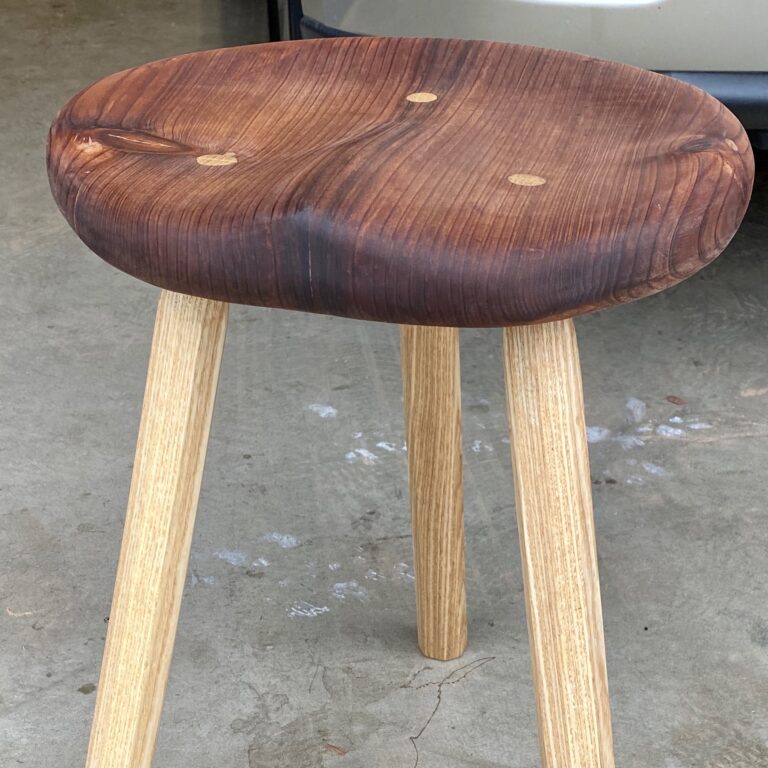Join us this Saturday at 10.00 am to take a look at Staked furniture and the art of drilling holes in two directions at once.
One of the most durable and ancient methods of table, benches, stools and chairs is known as staked furniture.

The form’s strength and simplicity derive from the legs being directly mortised into the top without the use of aprons and stretchers and often at non perpendicular angles. The form also eliminates the need to allow for wood movement between the base and top. For millennia, benches and tables of many types were made this way.
While the shape of the mortise and tenon are variable, one of the common types is tapered. A tapered hole is drilled at the correct combination of angles and a cone shaped tenon is fitted snugly into this mortise.
Drilling a hole that is perpendicular to your piece is easy on a drill press, but when you are drilling at two different angles through the bottom of a stool seat it can rapidly become an exercise in frustration. When you accidentally drill in the wrong direction from the bottom of the seat, it is often ruined the only thing to do start again with fresh wood.

This Saturday we will demonstrate a stress free way to design and to set out and drill these angled mortises. I will show you how we use a mock-up to determine the hole drilling angles and how to translate those angles into a tapered mortise on the full size piece, followed by drilling and tapering the mortise.

For me, drilling these holes is now a pleasure and I wonder why I ever did it on a drill press!
See you on Saturday.

